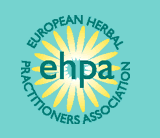 |
|
 |

Once this is in place such a list is more than likely to adopted where there is disagreement with other EU States since it may be based on UK generated "master files" generated from existing monographs and other data supplied by the UK herbal industry. In other words, the UK's listwould be likely to make the EU positive list much more inclusive. The UK hasproved itself a leader in developing the DTHMP and it would appear likely that its future influence in setting EU standards will be significant. The MCA is keen on the UK herbal industry assembling as much safety and otherdata for herbs as possible. This would be especially valuable with regard to say Indian, Chinese or South American herbs that have not had BHP or ESCOP or other EU monographs. As I say, in effect, by doing this work, the industry would make inclusion of these herbs much more likely on the EU centralised list. This is probably the best way to ensure the herb industry gets what it wants regarding DTHMP registration. I don't think that anyone yet knows what will happen to smooth out the difference between Ireland and the UK in the case of Hypericum but I think that the UK could argue that having allowed it on the market with suitable warnings on the packet, it has been safely used for several years. The Irish Government, by the way, is about to put in to Irish law a statute that closely resembles our 12.1 provision allowing Irish herbalists to prescribe Hypericum and other herbs banned in Ireland. This represents a significant victory for Irish herbalists and our Irish colleagues are to be congratulated on all the lobbying and hard work that they have done to bring this about.
Back More info